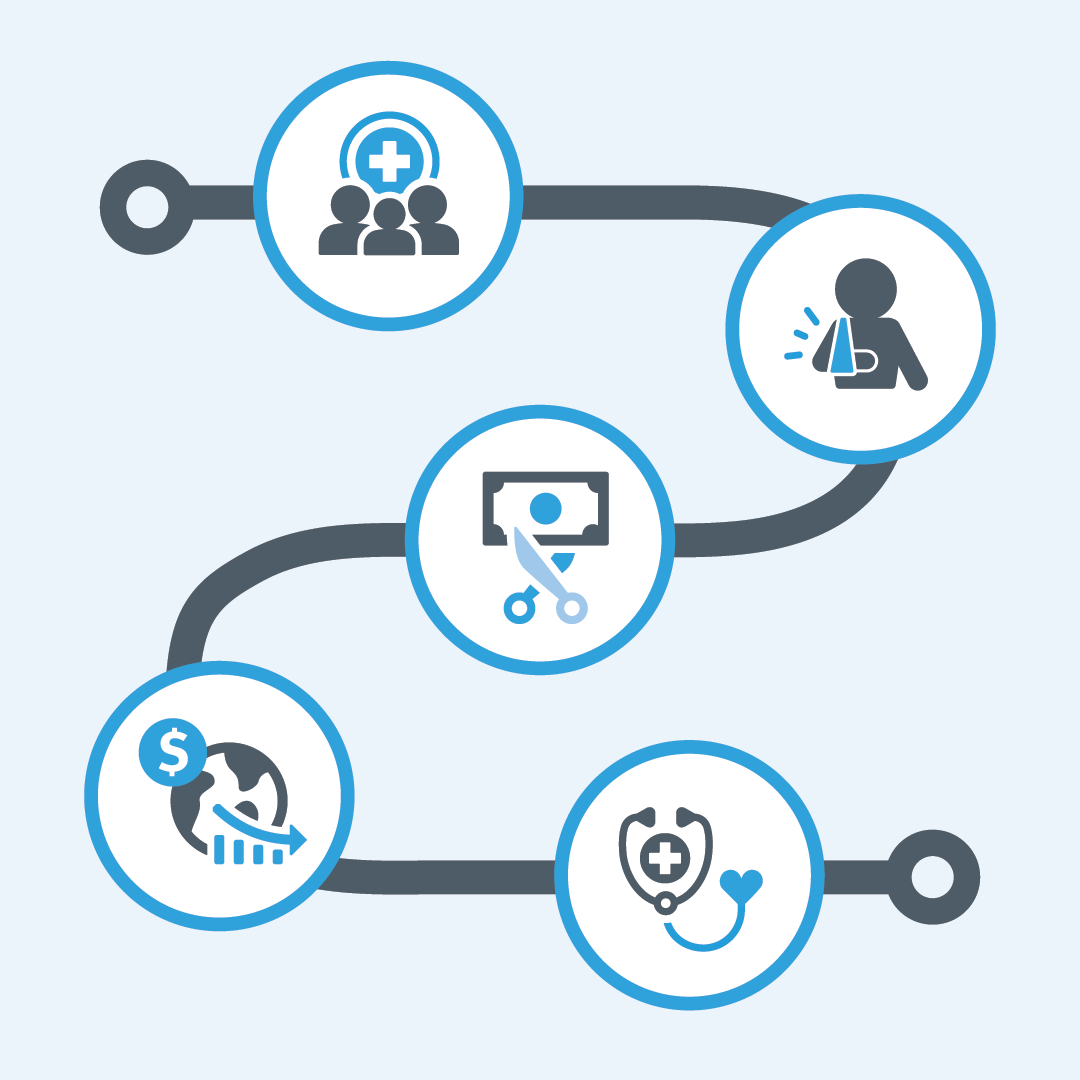Section 1115 Waivers: Limits and Overreach
08.07.2017
Section 1115 of the Social Security Act gives the Secretary of Health and Human Services (HHS) the discretion to let states waive certain Medicaid requirements to carry out an “experimental, pilot or demonstration project which, in the judgment of the Secretary, is likely to assist in promoting the objectives of” the Medicaid program.1
Section 1115 gives the Secretary broad authority, but that authority is limited. In addition to the limits on the types of waivers (experimental, demonstration) and purposes (likely to promote Medicaid’s objectives), the Secretary can only waive items in one section of the Social Security Act, section 1902.2
Waiver approvals are subject to judicial review, and there are cases where courts have ruled that the Secretary has overreached and waivers have been overturned.3
Initial signals from the Trump administration heighten concerns about overreach. HHS Secretary Price, early in his tenure, sent a letter to governors stating the administration is willing to approve and fast-track far reaching waivers, including approving provisions that the Obama administration did not approve.4 States have begun to test the limits and submit requests for a wide range of waiver provisions.5 Many of those provisions will unquestionably limit Medicaid enrollees’ ability to access care.6
Here are some guidelines for evaluating waiver requests and assessing whether or not they overstep the Secretary’s authority.
Requirements and limits in section 1115
Waivers must be likely to promote Medicaid’s objectives.
The objectives of the Medicaid program are to enable each state “to furnish (1) medical assistance [to eligible individuals] and (2) rehabilitation and other services to help [eligible individuals] attain or retain capability for independence or self-care….”7 These two purposes reflect Medicaid’s role covering medical care and long-term services.
Provisions that are not related to a state furnishing medical assistance or rehabilitation services are not related to the Medicaid program and are outside of the Secretary’s 1115 authority. Waiver requests that restrict rather than extend coverage are opposed to the core objectives of Medicaid and could be legally challenged as such.
Programs must be “experimental, pilot or demonstration project(s).”
Waivers should be structured to test a hypothesis and must include specified evaluations that measure the waiver’s impact on beneficiaries. Courts have invalidated waivers on the grounds that they lack research value and pose potential harm to beneficiaries.8
The Secretary’s waiver authority under section 1115 allows for waiver of requirements in section 1902, not the whole Medicaid statute.
Section 1902 of the Social Security Act touches on a lot of the Medicaid program, but not all of it.9 Some key 1902 provisions that have been the subject of recent waiver requests.
- State-wideness. The state plan for medical assistance must be the same across the state and may not vary by political subdivision. This means that a state cannot provide a certain benefit in one city or county, but decline to provide it in another city or county.
- Comparability. The medical assistance made available to any enrolled individual cannot be less in amount, duration or scope than the medical assistance made available to any other enrolled individual. This means that one population cannot receive more or less generous benefits than another population.
- Reasonable Promptness. Eligible individuals who have applied for Medicaid must receive coverage promptly. Lockout periods or unreasonable delays in enrollment following application are not allowed. This includes the requirement states provide Medicaid coverage three months prior to the month of application (retroactive eligibility).
- Mandatory Benefits. States must cover certain mandatory benefits.10
- Eligibility Rules. Section 1902 spells out who is eligible for the Medicaid program and which populations states are required, or have the option, to cover.11
In contrast, benefits required for benchmark benefit plans (sec. 1937) fall outside the section 1115 waiver authority. Section 1937 of the Social Security Act outlines specific requirements for benchmark benefits plans, the basis for the benefit package requirements and enhanced match for the Medicaid expansion population.12 Similarly, the program objectives (sec. 1901): the Secretary cannot change the basic objectives of the Medicaid program.13
Payment to states (sec. 1903). The Secretary cannot waive or change the federal matching formula though Section 1115 or otherwise.14 Changes to that formula must come from Congress. However, section 1115(a)(2) does allow the Secretary to allow Medicaid match for expenditures that would otherwise not be covered under 1903 for allowable purposes of the demonstration.15 For example, the Secretary has authorized payment for provider incentives to make quality improvements and participate in delivery system reform initiatives using 1115(a)(2) authority.
The Secretary can waive requirements; the law does not give the Secretary authority to create new ones.
Section 1115 gives the Secretary the authority to waive a state’s compliance with existing federal requirements within one section of the Medicaid statute, section 1902. It does not give the Secretary authority to add new requirements to the Medicaid program.16 For example, making Medicaid eligibility contingent on work status, which is not included in Section 1902 or elsewhere, would add an extra eligibility requirement outside the statute. If recent state proposals to add such a work requirement are approved by CMS they could be legally challenged on these (and other) grounds.
- Cost-sharing Waivers under Section 1916(f): The provisions regulating cost-sharing do not primarily fall under Section 1902. Proposals to waive cost-sharing rules require a separate Section 1916(f) waiver, generally in addition to a section 1115 waiver. 1916(f) waivers have a particular set of requirements, including that enrollment into the cost-sharing waiver either be voluntary or that there be a control group and a waiver group.17 Indiana’s “HIP 2.0” Medicaid expansion demonstration included the first waiver under these requirements in Medicaid’s history.
Other Considerations: Budget Neutrality
Although not set in statute, it is long-standing HHS policy that Section 1115 waivers must be no worse than budget neutral to the federal government. This means that federal Medicaid expenditures with the demonstration project must not be greater than federal expenditures without the demonstration.18 The federal government enforces budget neutrality by placing a cap on federal waiver funds and putting states at risk for costs beyond the cap.19
Waivers can be challenged
The Secretary’s 1115 waiver decisions are subject to judicial review under the Administrative Procedures Act, the federal law that governs agency decision making.20 That means that waiver approvals in which the Secretary may have overstepped his or her bounds can be challenged. Waivers are not a means for the Secretary or states to evade statutory requirements, circumvent laws he or she does not like, or otherwise side-step Congress and the legislative process.21
What advocates can do
Advocates and others in the public can play a critical role in helping ensure that 1115 waivers are used appropriately and that the Secretary does not misuse his or her discretion.
There is a legally required public notice and comment period for 1115 waivers, and advocates and other concerned members of the public should participate in that process both at required public hearings and by filing written comments when waivers are proposed, particularly at the federal level. If the notice and comment period isn’t adhered to, that in and of itself can be grounds to legally challenge the waiver.
Comments submitted are reviewed and do sometimes result in waiver changes. But comments also become part of the administrative record and can be used if lawsuits are brought challenging the Secretary’s authority to approve certain waiver provisions.
Waivers were never intended as a vehicle for cutting back Medicaid coverage or otherwise reversing Congressional action with regard to the Medicaid program. By getting engaged and filing comments during the decision making process, advocates can help ensure the integrity of the waiver process.
For full endnotes, please download the PDF version of this fact sheet.




